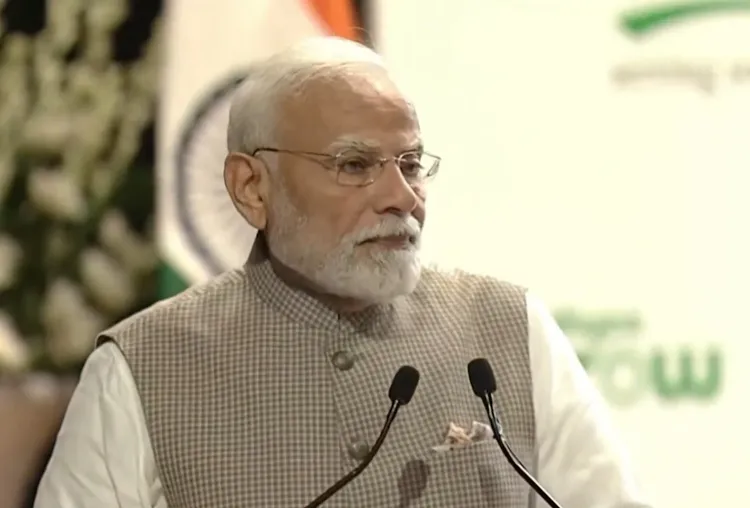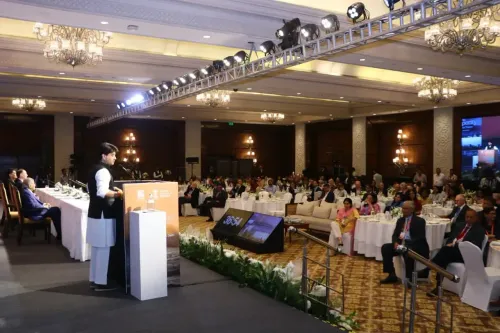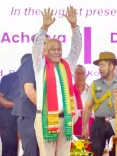Did Dr Swaminathan Introduce the Concept of Bio-Happiness and Climate-Resilient Crops?

Synopsis
Key Takeaways
- Dr. M.S. Swaminathan introduced the concept of bio-happiness.
- Climate-resilient crop varieties are essential for food security.
- PM Modi emphasized the need for innovative irrigation techniques.
- The importance of integrating technology in agriculture was highlighted.
- Commemorative initiatives include a postage stamp and coin.
New Delhi, Aug 7 (NationPress) Dr. M.S. Swaminathan conceptualized the notion of bio-happiness and advocated for climate-resilient crop varieties essential for addressing the escalating challenges posed by global climate change on food and agriculture, stated Prime Minister Narendra Modi on Thursday.
August 7 marks the birth anniversary of Dr. M.S. Swaminathan, a globally acclaimed agricultural scientist recognized as a key figure in India’s 'Green Revolution' during the 1960s.
While speaking at the M.S. Swaminathan Centenary International Conference in the national capital, PM Modi highlighted that the Bharat Ratna awardee Dr. Swaminathan was a visionary leader who spearheaded the initiative to make India self-sufficient in food production.
“Today, there is a worldwide discussion on biodiversity, with governments globally taking measures to protect it. However, Dr. Swaminathan advanced the conversation by introducing the concept of bio-happiness. We are here today to honor that very principle...,” PM Modi emphasized.
“You are all aware of the threats that climate change poses. It is imperative that we cultivate a wider range of climate-resilient crop varieties. The emphasis should be placed on crops that can withstand drought, resist heat, and adapt to flooding,” he continued, advocating for enhanced research into crop rotation strategies and determining which crops thrive in specific soil types.
Praising Dr. Swaminathan’s contributions to agriculture, PM Modi remarked that the renowned scientist taught us that “agriculture transcends mere crops; it encompasses the livelihoods of people, the dignity of every individual involved in farming, the prosperity of communities, and the safeguarding of nature, which forms the foundation of our government’s agricultural policy.”
Furthering his vision, the Prime Minister stressed the necessity to amplify efforts in solar-powered micro-irrigation.
“The implementation of drip irrigation systems and precision irrigation should be expanded and optimized. Can we harness satellite data, AI, and machine learning? Can we establish frameworks that predict yields, monitor pests, and offer real-time farming guidance? Such real-time decision support systems should be accessible in every district. Additionally, it’s crucial to mentor agri-tech startups,” PM Modi stated.
Referring to him as a “gem of Mother India,” the Prime Minister expressed that Dr. Swaminathan demonstrated through his endeavors that “science is not solely about discovery, but also about implementation.”
During the event, the PM also unveiled a postage stamp and a coin commemorating the birth centenary of M.S. Swaminathan.
Moreover, the Prime Minister will present the inaugural World Academy of Sciences (TWAS) M.S. Swaminathan Award for Food and Peace.









